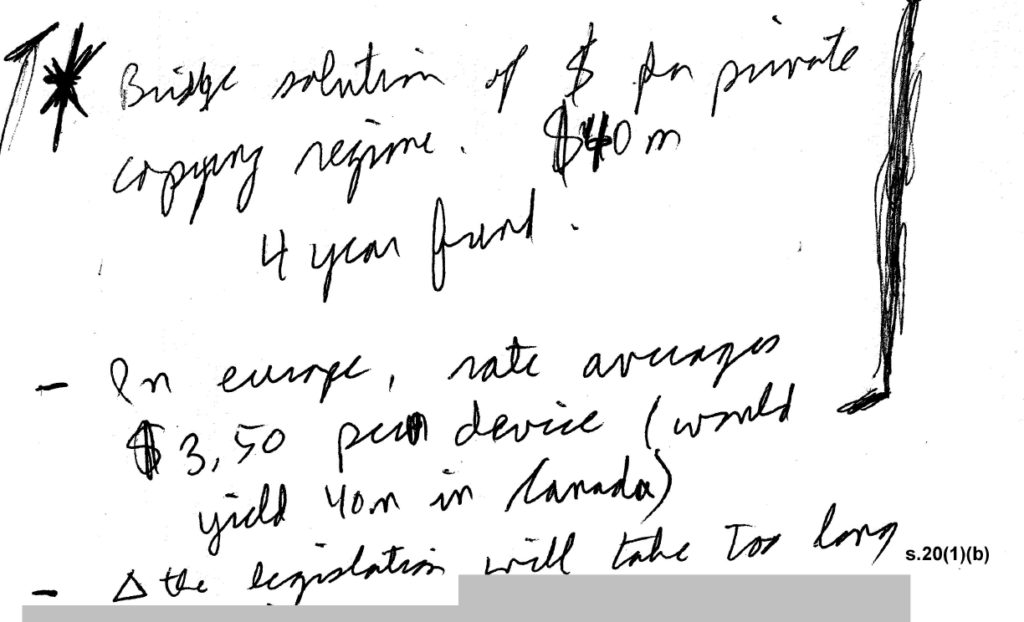Last fall, months before the start of the Canadian copyright review, the Canadian Private Copying Collective, the collective that administers the tax on blank CDs that has long advocated for extending the payments to iPods and other electronic devices, met with senior officials at Canadian Heritage including Deputy Minister Graham Flack and Melanie Joly’s chief of staff Leslie Church (over two days the collective also met with politicians such as Dan Ruimy, Peter Van Loan, and Pierre Nantel). According to documents released under the Access to Information Act, the collective arrived with a startling demand, asking the federal government to pay $160 million over the next four years to compensate for music copying.
The demand, which now forms part of the platform of demands from the Canadian music industry, is based on a $40 million annual handout. While the industry has not provided details on how it arrived at its figure, notes (likely from Graham Flack) reveal the basis of the demand.

CPCC meeting notes, obtained under Access to Information Act
First, the industry argues that legislative reform will take too long, so rather than changing the law to apply to all smartphones and similar devices sold in Canada, it wants the government to pay what it believes would be the equivalent revenues directly out of tax revenues. Second, the source of the $40 million is revealed in the notes. The CPCC wants a copying payment for every device sold in Canada. It estimates that in Europe there is a per device copying fee of $3.50. In Canada, that would yield $40 million.
The demand is striking for several reasons. First, private copying of music has gradually diminished as Canadians gravitate to subscription services such as Spotify or ad-based streaming services that remove the need for copying. The government memo notes that “a functional, fully-licensed music streaming marketplace reduces the practice of unlicensed copying by consumers.” Second, the government also notes in the preparatory materials that private copying revenues are declining in many countries including Japan, Poland, and Portugal, which recognize the diminishing relevance of music copying in a subscription-based world.
As I wrote in a piece on the broader music industry demands, the Canadian music market is growing much faster than the world average, with Canada jumping past Australia last year to become the sixth largest music market in the world. Music collective SOCAN, a coalition member, has seen Internet streaming revenues balloon from $3.4 million in 2013 to a record-setting $49.3 million in 2017. Yet despite the success stories, the CPCC and the broader music industry wants a $160 million handout based on the premise that every device sold in Canada should have a music copying fee attached to be paid by taxpayers.
The post Canadian Music Industry Wants Government to Pay Copying Fee for Every Smartphone Sold in Canada appeared first on Michael Geist.